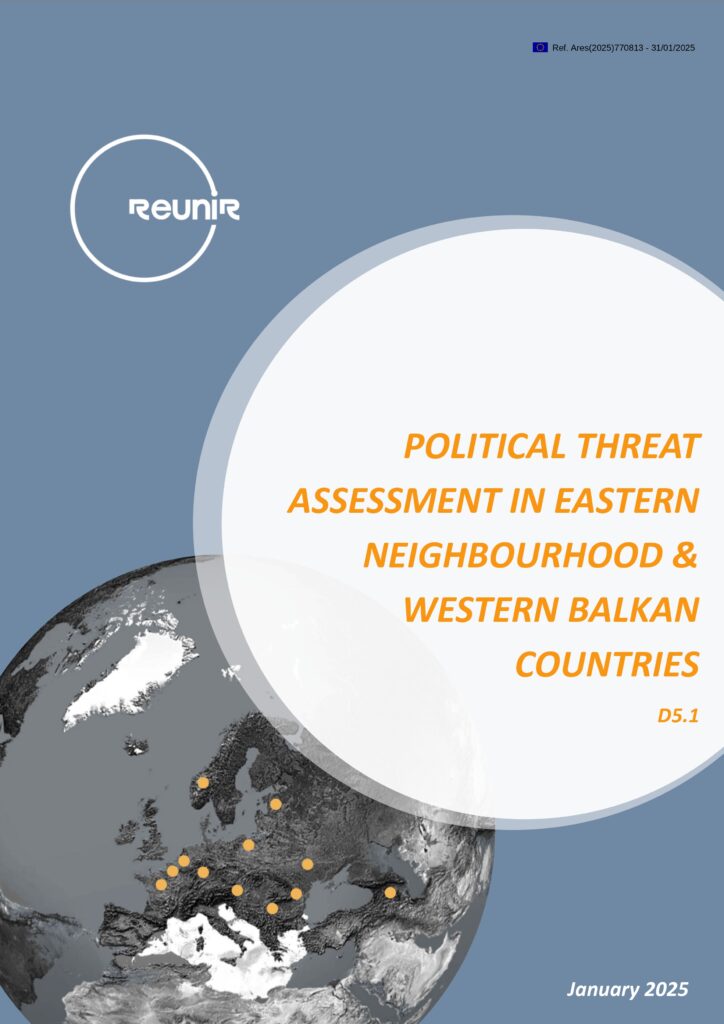Executive summary
This working paper assesses political threats to democratisation and EU integration in the Eastern Neighbourhood (EN) and Western Balkans (WB). These regions are vital for the European Union’s strategic goals, yet their progress is hindered by geopolitical interference from actors such as Russia, China, Türkiye, and the Gulf states.
The geopolitical context highlights how EN and WB countries are navigating a complex landscape of influence. Russia remains the most disruptive external actor, employing political interference, disinformation, and cultural diplomacy to destabilise governments and impede EU alignment. Countries like Serbia, Georgia, and Moldova are particularly vulnerable to Russian tactics, which includes support for separatist movements and anti-EU political narratives. China’s approach is more subtle, focusing on economic investments and promoting its governance model as an alternative to liberal democracy, with notable impacts in Serbia and Montenegro. Türkiye and the Gulf states primarily use cultural and religious diplomacy, leveraging historical and religious ties to expand their influence, although their impact is less destabilising compared to Russia.
The threat assessment reveals that external actors use a range of tools to undermine democratic institutions and EU integration efforts. These include disinformation campaigns, electoral interference, and leveraging cultural and religious institutions. The likelihood and impact of these threats vary, with Russia’s activities in Serbia and Georgia posing significant risks. China’s influence, although less overt, fosters long-term authoritarian tendencies. Cultural diplomacy by Russia and Türkiye further complicates the democratic aspirations of these regions, through exploiting societal divisions and historical narratives.
Addressing these threats requires targeted EU policies to mitigate vulnerabilities such as weak institutions, restricted media freedom, and socio-economic instability. Comprehensive strategies must counter hybrid threats while fostering resilience in candidate countries to ensure their alignment with democratic norms and European integration objectives. This Working Paper serves as a foundation for further research and policy development to strengthen the EU’s position in these contested regions.

